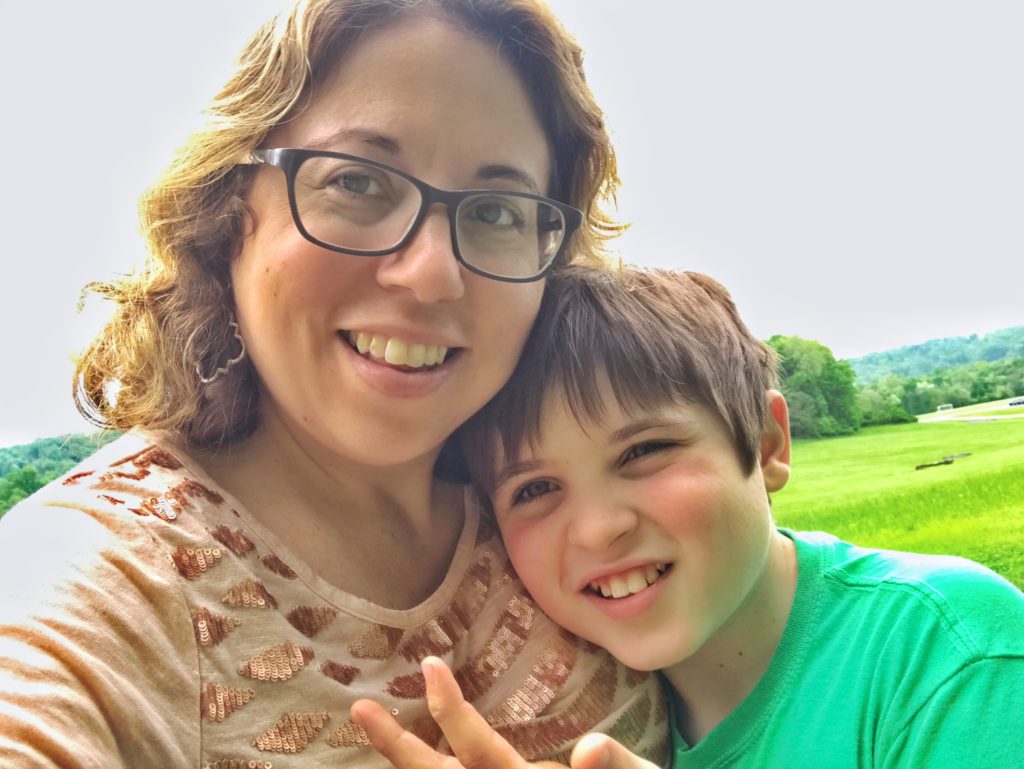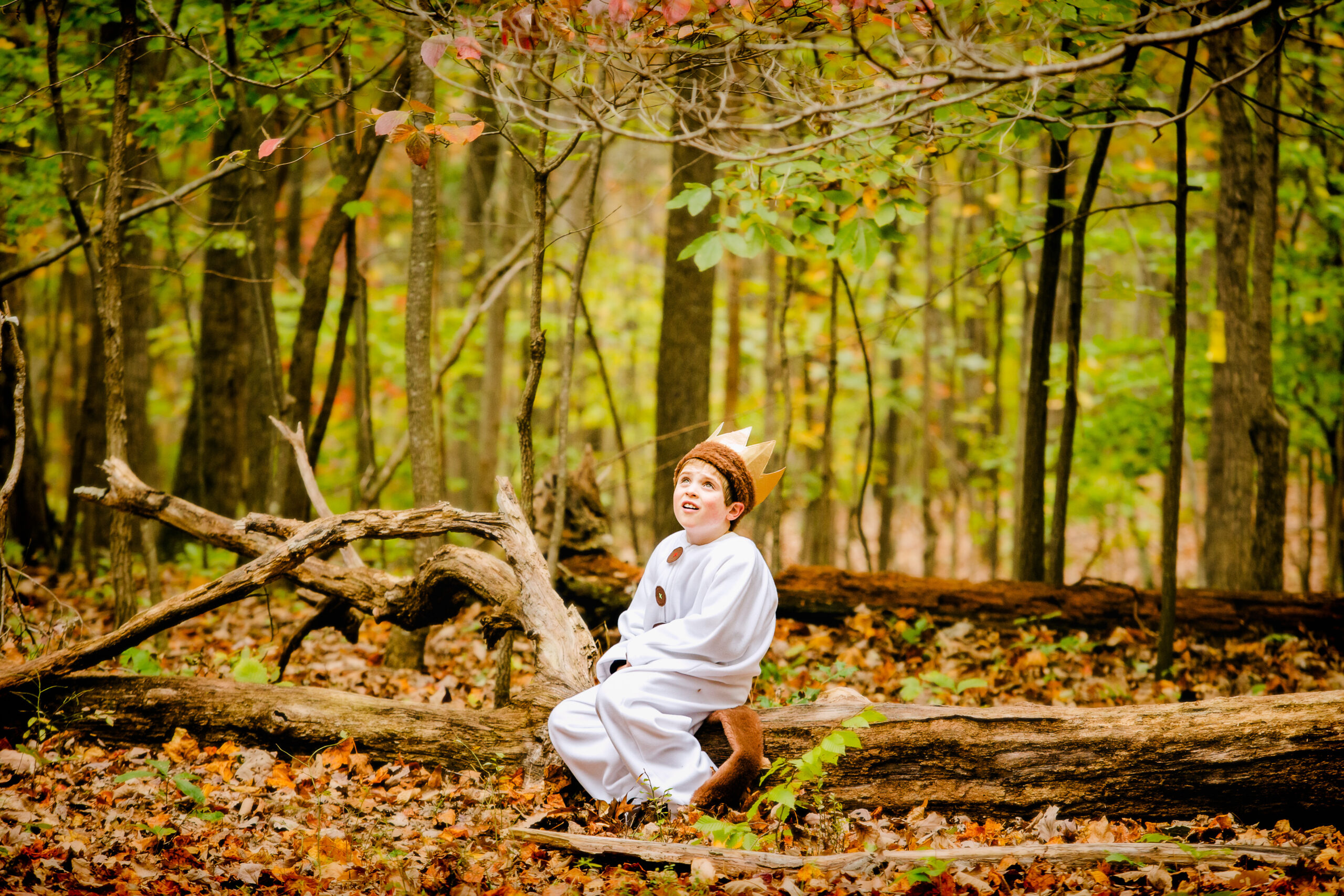When autism parents meet each other for the first time, it’s pretty common to sniff each other’s butts–conversationally speaking–to determine what kind of autism parent the other one is. What treatments has the other pursued? Where do they fall on the vaccine debate? What do they think caused their child’s autism? Or do they not wonder at all (i.e., God or a random roll of the genetic lottery)?
(Quick reveal here: our daughter, who was born after my son, is fully vaccinated. And I personally believe in the random genetic lottery thing, although my husband is more skeptical. I share this not to open up the comment door to the greater debate about what causes autism, but rather to just get those questions about me answered and out of the way.)
Once you have sussed out what kind of parent you are speaking with, you can appropriately orient the conversation that follows. You temper or expand upon your theories. You share your child’s medication regime or you shut up about the powdered pig whipworms you have your child drink.
We are mostly past the point of trying to treat, and very much in a period of pure management. We manage his behavior with straight-up western medication, care of a psychiatrist, to round out his edges. And–if the insurance gods and our rural location could ever get on the same page–we’ll get back to in-home behavioral therapy. As previous posts have indicated, we are in pure survival mode. For the moment, and probably forever, we’ve given up on identifying anything that will minimize the most troubling parts of his severe autism, let alone cure it.
But every once in a while, a doubt rears its annoying head. We hear about some treatment that won’t harm our son, but probably won’t help him. Probably. We can’t be 100% sure. Because there are parents who swear it helps. Men in white coats who conduct scientific studies that show reductions in severity…for a mere $10,000 – $16,000. Clipped newspaper articles mailed to us by relatives about miracle treatments. There are groups on Facebook where parents swap medicines that they’ve negotiated group discounts on through doctors. Groups where parents report that their child has become less violent or spoken a few more words after Treatment X.
I am somewhere between being 100% cynical and being that younger, desperate, hopeful parent I was when my son was first diagnosed. The one who sat in a doctor’s office, where we were prescribed worms to give our son in butter under a full moon (no, we did not follow this doctor’s orders). At one point, we spent the money on the supplements. We tried the diets. We stopped short of the heavy metal detoxes and hyperbaric chambers. Just the supplements and diet, please.
Through it all, we stared at our son, wondering if we were witnessing just the slightest improvement in his language or behavior. It was like playing that Ouija game, wondering if our “scientific” observations were really just subconscious fingers pushing the needle across the board. After perhaps a year, we gave up on the supplements and tortuously limiting diet.
Over the ensuing years, we have toyed with the idea of trying other therapies, but have never emptied our bank accounts to take the leap. The early years of hope and disappointment–not to mention vanished money–were enough to peel the hope from our hearts.
I empathize with those parents that are still trying (maybe more so with those who are seeking merely to improve rather than to cure). As the mother of a child who is unlikely to ever walk this earth without a one-on-one aide for the rest of his life, who will probably never utter a complete sentence, I know what it means to yearn for a different prognosis. I have dreamed of having conversations with my son. And each time I wake, I am achingly bereft.
But you know what else aches? The fear of missing out on that one thing that could make our family’s life easier. The “what if” factor: What if we use the cord blood we laughed at ourselves for storing 11 years ago? What if we actually try the fecal macrobiota transplants…and it turns out that our son finally learns to talk? What if we could be that lucky family for whom these crazy-sounding treatments actually work? What if my son will spend the rest of his life locked inside his severe autism, when a $12,000 treatment could have allowed him to sit still and pay attention to something for a few minutes, rather than climbing the counters in search of food?
There is a certain type of agony I experience when I ask myself if we are refusing to buy the key.
We will never know. Not unless someone hands us a blank check and the multiple double-blind studies that give us the evidence we need to get on the plane to those foreign clinics where desperate parents go in search of these treatments.
But if I’m being honest with myself, would I even need the multiple scientific studies to pursue some of this stuff? I’m not so sure. If we had the money, would I continue to hesitate, claim skepticism, and assume that these greedy doctors are dangling these pointless treatments above the bank accounts of desperate parents? Or would I be on the first plane to Panama, signing my son up for a therapy with very low probability of success? It is quite possible that I might shift back to being a desperate and willing parent.
With hope comes doubt. Doubt that we have tried everything there is to try. Doubt that there isn’t some sort of treatment out there that can make his life (and our lives) just a little better. Doubt that his prognosis is final. And doubt is an uncomfortable place to live. So we live with “pretty much certain” that things will stay the way they are, at least for six days a week.

